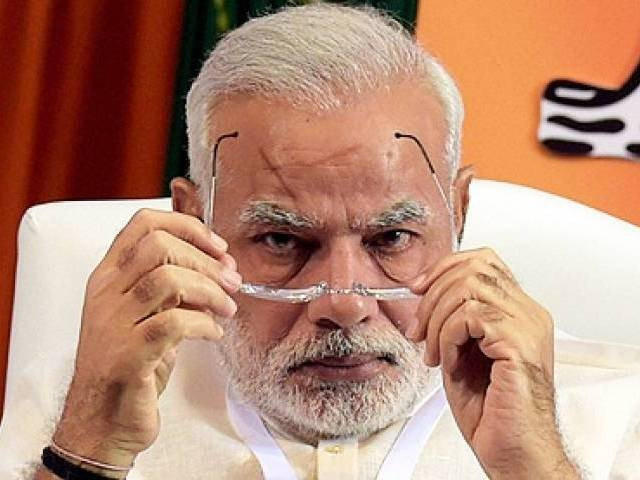Narendra Modi, again?
The popularity of Modi had slumped significantly until the hostilities erupted with Pakistan

The primary impression about this being an election based on the performance and validity of the Bharatiya Janata Party (BJP) is masked by the concomitant vehemence projected and bashing done against Pakistan. In fact, beset with domestic issues ranging from woes of farmers to mismanagement in multi-million dollar deals, the popularity of Modi had slumped significantly until the hostilities erupted with Pakistan. The evidence of the fact lies in numerous analyses offered before and after the crisis. As discussions carry on about the militancy of nationalism in India and mob frenzy trumping the validity of participatory politics in India, the prospect of another Modi victory holds grave consequences for Pakistan.
Foremost of these issues remains the entrenched vision of Modi in defining the escalatory tone of his politics. Narendra Modi has shown his desire to approach Pakistan, not with a conciliatory stance but rather an effrontery designed to bolster his support in his home base. This has paid well for him in earlier elections. The results of this election will determine if it becomes his regular gambit for elections.
The military adventurism garbed in his political narrative increases the costs for both sides. While the crisis in February demonstrated the unpredictability of Indian action, it also puts a burden on Pakistan’s tactical nuclear weapons. An ace in the crisis escalation ladder which counters the conventional ability becomes very limited in face of airstrikes. As airstrikes are becoming an integral part of Indian doctrine of conflict vis-à-vis Pakistan, there is the possibility that the nuclear threshold and red lines that Pakistan has stated may become bleaker. This is a very dangerous situation because if Modi wins and completes another five-year term, a similar clash may erupt during the commencement of this premiership. That will be very debilitating and disastrous.
What is the alternative? The Congress has remained dormant in its policy regarding Pakistan. Rahul Gandhi has been weak in professing any alternative possibility for Pakistan, focusing on the stereotypical notions and vested standards of the Indian political psyche. In the times of escalation and confrontation, there was no alternative position that challenged the megalomania of his opponents. This will seriously undermine any efforts in the future as being too late.
Kashmir remains an intractable issue in the relationship of both states. While Modi has used it as a placard for furthering his political and electoral agenda, the causes and reasons for grievances go further down. As an issue that raises sensibilities and divides opinions, Kashmir will remain a puzzle. The change is that while before Kashmir was highlighted as a humanitarian issue by Pakistan, it has been turned by Modi as not a place that requires a solution but a region that gives him political mileage. It is also being used as a tool to wage war with Pakistan, hence limiting the prospects of any solution. This will remain the most pointed and poignant of the relationship between the two countries.
India needs to find a better alternative or Pakistan needs to make best use of the divide by adopting a proactive strategy to challenging times. Whatever the outcome, the future needs serious thinking form both sides.
Published in The Express Tribune, March 24th, 2019.
Like Opinion & Editorial on Facebook, follow @ETOpEd on Twitter to receive all updates on all our daily pieces.
















COMMENTS
Comments are moderated and generally will be posted if they are on-topic and not abusive.
For more information, please see our Comments FAQ